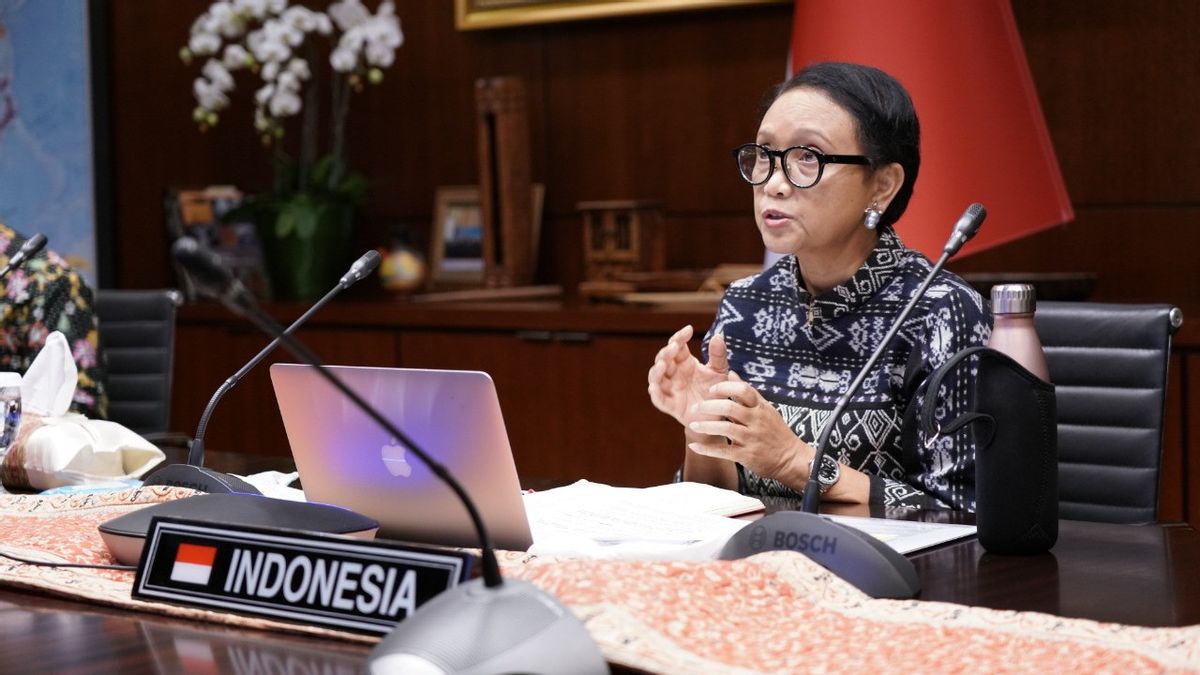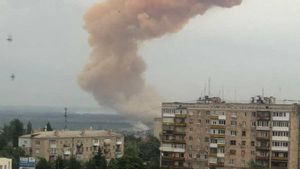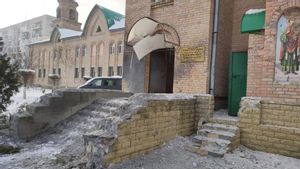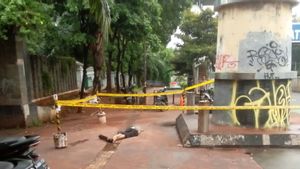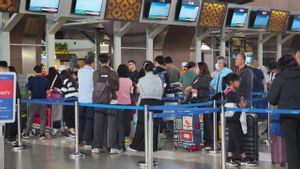JAKARTA - Indonesian Foreign Minister Retno Marsudi said what happened in Ukraine showed the architectural weakness of the post-Cold War region, whose impact was felt globally, with an emphasis on the importance of maintaining stability and security in the Indo-Pacific region.
This was conveyed by Foreign Minister Retno after attending the High Level Dialogue on the Indo-Pacific in Prague, Czech Republic. Appointed as the main speaker, Foreign Minister Retno emphasized the importance of building a positive paradigm and synergy between the Indo-Pacific initiative concepts, to maintain stability, peace and prosperity.
"What is happening in Ukraine is only an example or symptom of the serious problems we are currently facing, namely: the loss of mutual trust or a trust deficit; the existence of a zero-sum paradigm; and the erosion of respect for international law," explained Foreign Minister Retno in a written statement on Tuesday, June 14.
"And in just 4 months, the war in Ukraine has had a wide geo-political and geo-economic impact on various countries, including in the Indo-Pacific region," she continued.
Furthermore, Foreign Minister Retno explained that what happened in Ukraine actually exposed the architectural weaknesses of the post-Cold War region, which was thick with the containment approach.
"This war also reminds us to be able to better manage potential conflicts in our region," she said.
"Peace and stability cannot happen suddenly. This must continue to be pursued and developed," said Foreign Minister Retno.
On this occasion, the Foreign Minister offered three formulas to achieve security and stability in the Indo-Pacific region during the High-Level Dialogue.
First, all parties must uphold the UN Charter and international law. According to him, respect for the principle of sovereignty and territorial integrity must be consistently enforced, not selective if only deemed appropriate.
"Peaceful resolution is the only way to resolve conflicts. These are the rules of the game that all countries must obey," said Foreign Minister Retno.
The second thing that was conveyed by Foreign Minister Retno was the importance of creating an inclusive regional architecture. As an example, ASEAN continues to try to build a collaboration paradigm as a guide in the formation of regional architecture.
"We open cooperation with all countries. The ASEAN-led processes mechanism with all ASEAN dialogue partners is a clear example of this paradigm. Currently, the ASEAN Outlook on the Indo-Pacific also offers the same paradigm outside the ASEAN region," she explained.
"We want the principle or value of inclusiveness and not containment to be applied by all countries in interacting in the Indo-Pacific region."
"I also emphasize that the formation of groups or minilateralism in the Indo-Pacific region must be a building block to create stability, peace and prosperity in the region," she said.
The third thing he expressed was the importance of prioritizing concrete cooperation. According to Foreign Minister Retno, cooperation in the Indo-Pacific region cannot be built solely on a political and security approach.
"The ASEAN Outlook on the Indo-Pacific offers concrete cooperation that benefits the people in the region, especially in the maritime sector, connectivity, the Sustainable Development Agenda, and economic cooperation, especially trade and investment," she explained.
VOIR éGALEMENT:
"I underline, the four areas of cooperation represent the interests of all countries in the region that can unite and not divide common interests," she continued.
He added that concrete cooperation can encourage interdependence between countries and can create mutual trust. And this spirit must continue to be encouraged.
"And I also convey that the European Union's support for the concrete implementation of the ASEAN Outlook on the Indo-Pacific is very important," concluded Foreign Minister Retno, adding that peace, stability and prosperity in the Indo-Pacific region are not only beneficial for the region, but also for the world as a whole.
The English, Chinese, Japanese, Arabic, and French versions are automatically generated by the AI. So there may still be inaccuracies in translating, please always see Indonesian as our main language. (system supported by DigitalSiber.id)
